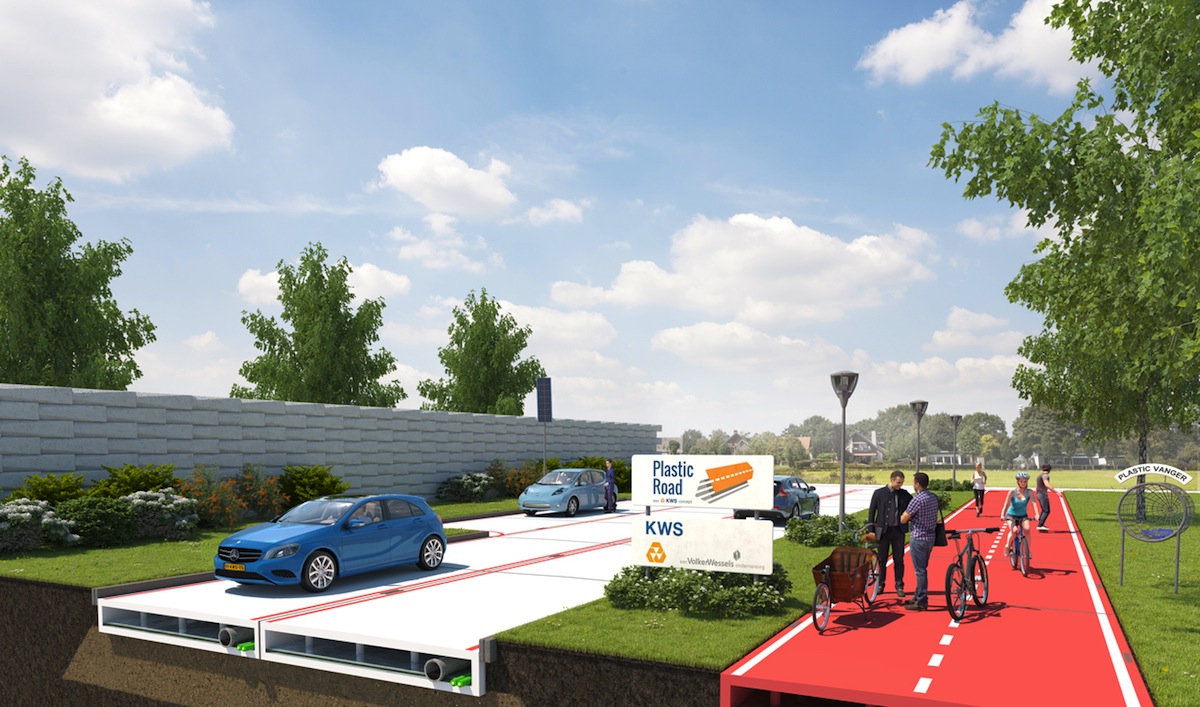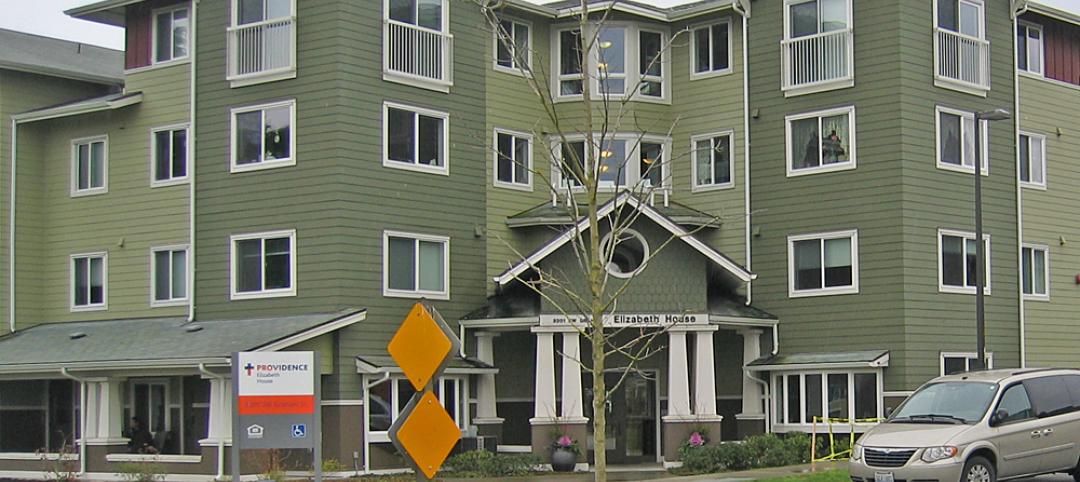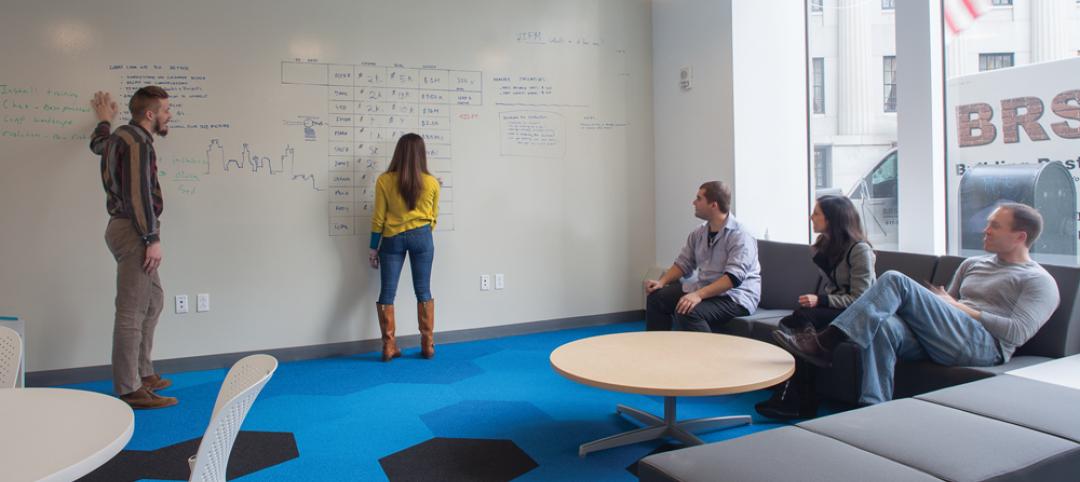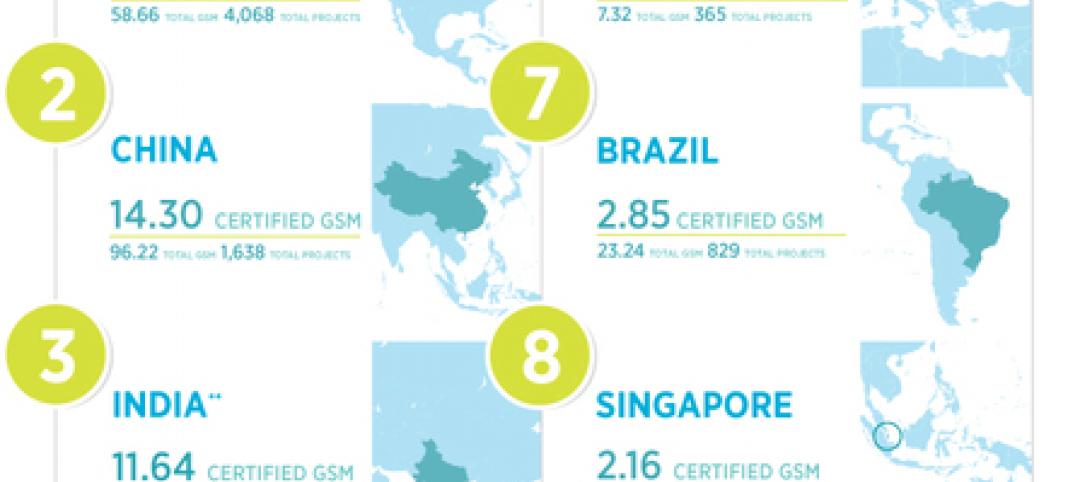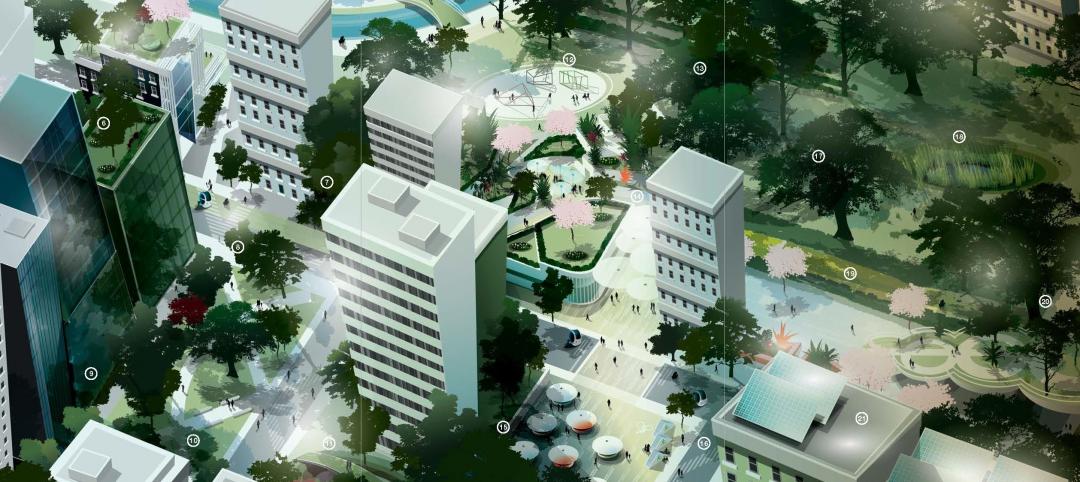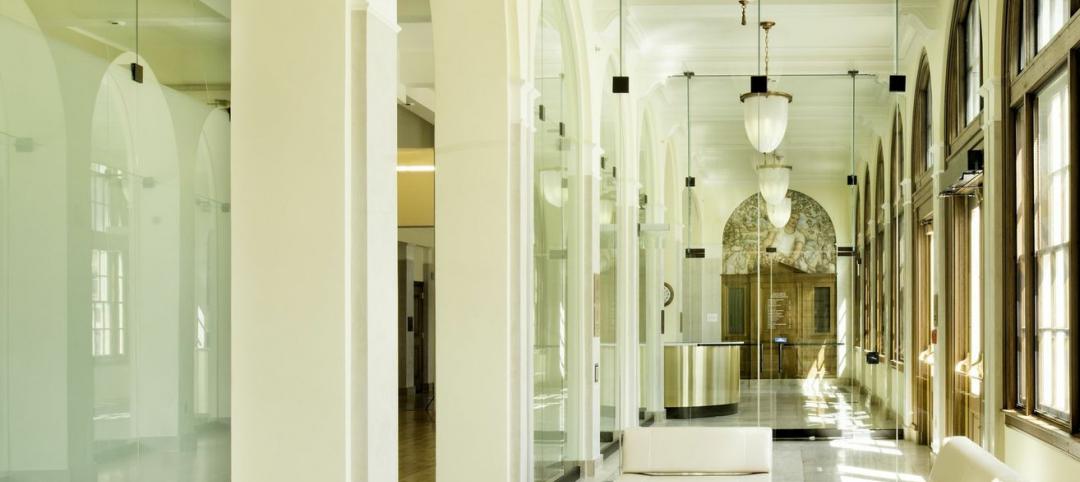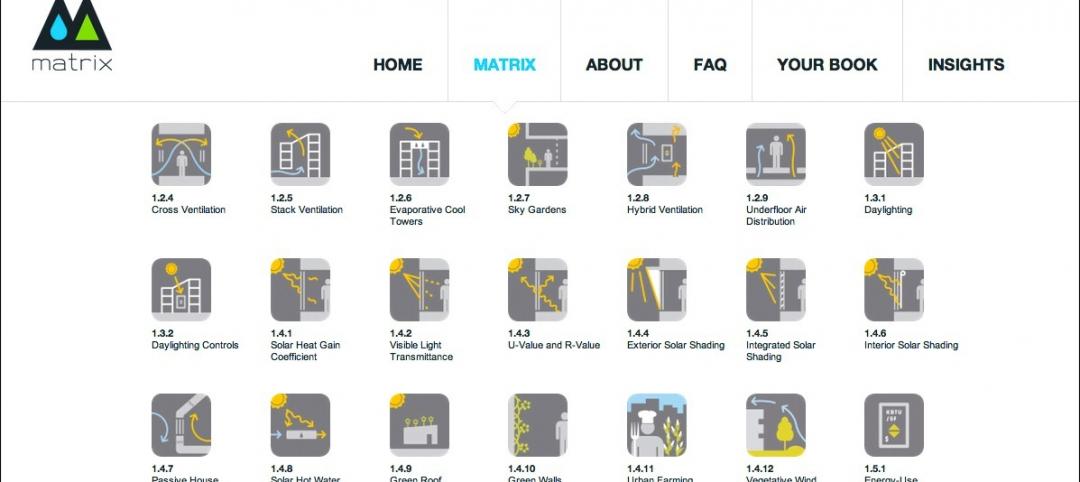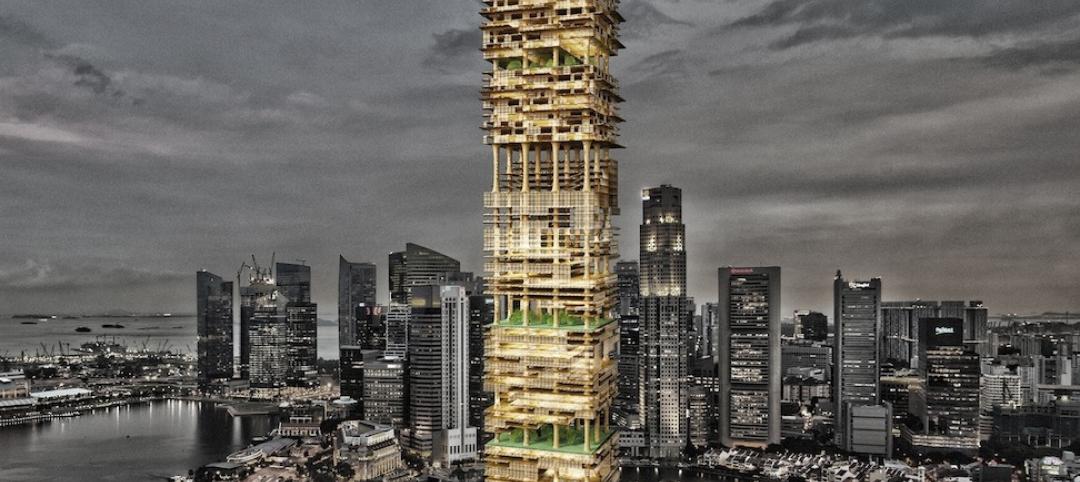All kinds of recycled waste goes into public roads these days, including blast furnace slag, scrap tires, and roofing shingles, according to the Federal Highway Administration.
An estimated 300,000 metric tons of recycled plastic are also used annually as a binder additive for public roads in the U.S. But that’s a drop in the bucket compared to the five trillion pieces of plastic junk currently floating in the oceans, to which eight million metric tons of plastic waste gets added every year.
The Netherlands is trying to take this recycling to another level, and is vying to become the first country to pave streets with materials made entirely from plastic waste.
Dutch-based KWS Infra, the roads division of VolkerWessel, is piloting a program to make roads from plastic garbage, including bags and bottles extracted from the ocean, according to Fast Company. This PlasticRoad project, which is still on the drawing board, is part of a larger initiative to rid the seas of its “plastic soup”.
Alex van de Wall, KWS’s innovation manager, says that the plastic being used would include a waste stream that normally doesn’t have high-end recycling applications and would otherwise be burned.
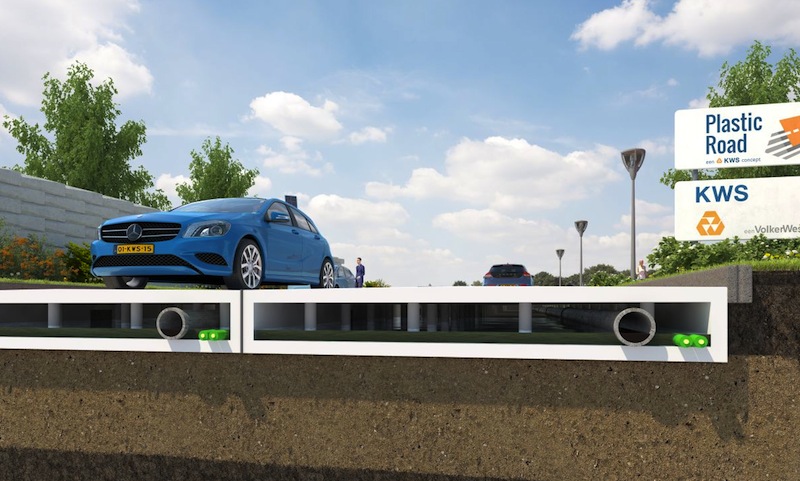
KWS sees a number of advantages to using plastic trash for roads over asphalt or concrete:
• Recycled plastic has a considerable lower carbon footprint than the production of asphalt, which accounts for 2% of global carbon emissions. Plastics can also withstand greater extremes of temperature—between -40 Celsius and 80C.
• Plastic roads could be modularized—i.e., made in factories and then snapped together in the field—so a road could be built quicker than with asphalt. KWS also claims that plastic-made roads would be far more durable and easier to maintain and repair than asphalt roads.
• Plastic could be colored white, which would help keep cities cooler and reduce what van de Wall says is the “heat island” effect caused by asphalt paving. Once this concept is translated into an actual product, “There are many options,” he says.
• When a plastic road wears out, it could be recycled again.
KWS thinks it can overcome some of the problems related to using plastic for roads, such as how the product reacts to changing temperatures and gets very hot. The company plans to test plastic roads in the lab first and then try them out at a “street lab” in Rotterdam.
“We’re very positive towards the developments around PlasticRoad,” said Jaap Peters, from that city council’s engineering department. “Rotterdam is a city that is open to experiments and innovative adaptations in practice.”
KWS is currently looking for plastic supply partners to assess the financial feasibility of its design. And if this concept pans out, the company expects to export the idea to other countries.
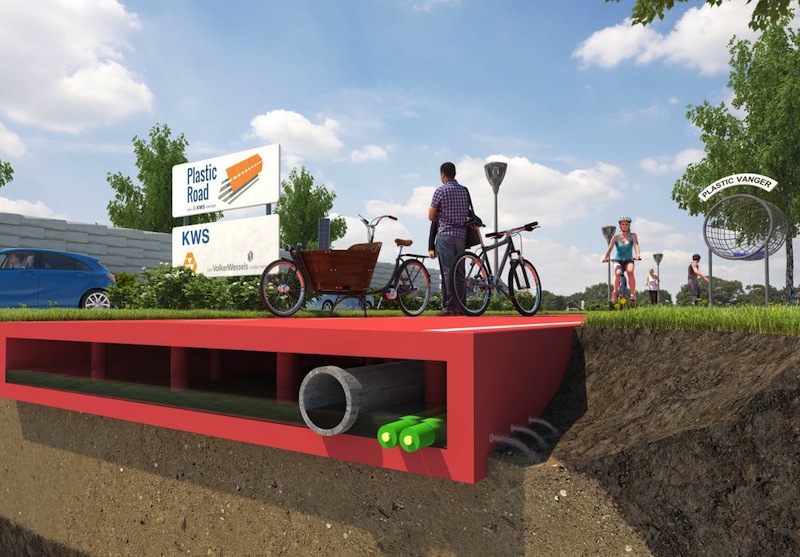
Related Stories
| May 16, 2014
BoA, USGBC to offer $25,000 grants for green affordable housing projects
The Affordable Green Neighborhoods Grant Program will offer 14 grants to developers of affordable housing in North America who are committed to building sustainable communities through the LEED for Neighborhood Development program.
| May 15, 2014
Paints, coatings, and sealants: 10 new ways to seal the deal
Color-shifting finishes, dry-erase surfaces, and stain-blocking paints are highlighted in this round up of new offerings in paints, coatings, sealants, and finishes.
| May 13, 2014
Drexel University case study report: Green Globes cheaper, faster than LEED
GBI’s Green Globes certification process is significantly less expensive to conduct and faster to complete than LEED certification, says Drexel prof.
| May 12, 2014
10 highest-rated green hotels in the U.S.
The ARIA Sky Suites in Las Vegas and the Lenox Hotel in Boston are among the 10 most popular hotels (according to user reviews) to also achieve Platinum status in TripAdvisor's GreenLeaders program.
| May 2, 2014
Top 10 countries for LEED buildings outside the U.S.
The list of the top 10 countries for LEED reflects the global adaptability of the world’s most widely used and recognized system guiding the design, construction, operations and maintenance of green buildings.
Smart Buildings | Apr 28, 2014
Cities Alive: Arup report examines latest trends in urban green spaces
From vertical farming to glowing trees (yes, glowing trees), Arup engineers imagine the future of green infrastructure in cities across the world.
| Apr 23, 2014
Mean and Green: Top 10 green building projects for 2014 [slideshow]
The American Institute of Architects' Committee on the Environment has selected the top ten examples of sustainable architecture and ecological design projects that protect and enhance the environment. Projects range from a project for Portland's homeless to public parks to a LEED Platinum campus center.
| Mar 26, 2014
Callison launches sustainable design tool with 84 proven strategies
Hybrid ventilation, nighttime cooling, and fuel cell technology are among the dozens of sustainable design techniques profiled by Callison on its new website, Matrix.Callison.com.
| Mar 21, 2014
Forget wood skyscrapers - Check out these stunning bamboo high-rise concepts [slideshow]
The Singapore Bamboo Skyscraper competition invited design teams to explore the possibilities of using bamboo as the dominant material in a high-rise project for the Singapore skyline.
| Mar 19, 2014
Green Building Initiative Invited to White House Rural Council Event to Support Growth of Green Building, Jobs, and Rural Communities
Green Building Initiative (GBI) Vice President for National Affairs Erin Schaffer is participated in an event at the U.S. Department of Agriculture headquarters on Tuesday, March 18th, designed to highlight the Obama Administration’s commitment to promoting building construction projects that use green materials, while also supporting jobs in rural communities.


